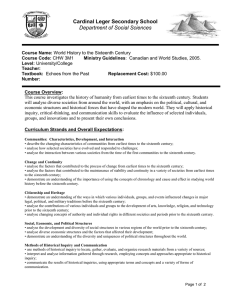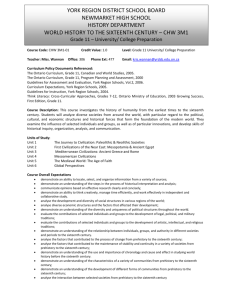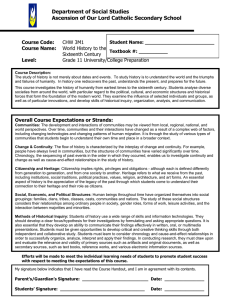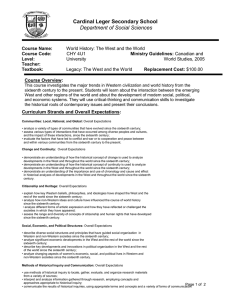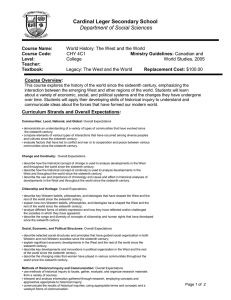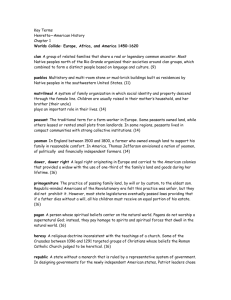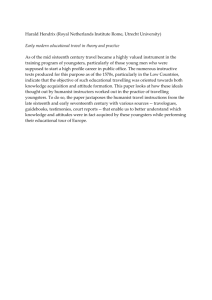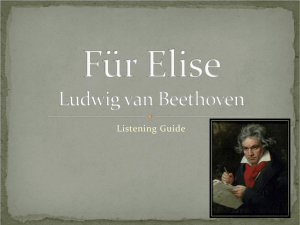Department of Social Science Ascension of Our Lord Catholic Secondary School
advertisement
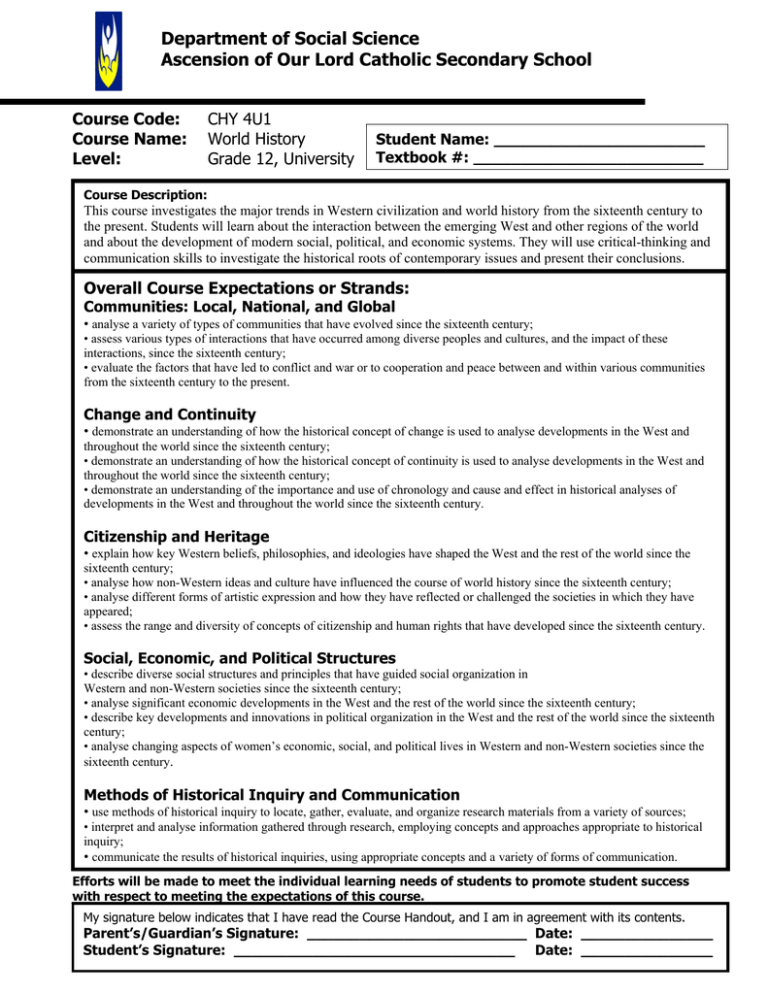
Department of Social Science Ascension of Our Lord Catholic Secondary School Course Code: Course Name: Level: CHY 4U1 World History Grade 12, University Student Name: ______________________ Textbook #: ________________________ Course Description: This course investigates the major trends in Western civilization and world history from the sixteenth century to the present. Students will learn about the interaction between the emerging West and other regions of the world and about the development of modern social, political, and economic systems. They will use critical-thinking and communication skills to investigate the historical roots of contemporary issues and present their conclusions. Overall Course Expectations or Strands: Communities: Local, National, and Global • analyse a variety of types of communities that have evolved since the sixteenth century; • assess various types of interactions that have occurred among diverse peoples and cultures, and the impact of these interactions, since the sixteenth century; • evaluate the factors that have led to conflict and war or to cooperation and peace between and within various communities from the sixteenth century to the present. Change and Continuity • demonstrate an understanding of how the historical concept of change is used to analyse developments in the West and throughout the world since the sixteenth century; • demonstrate an understanding of how the historical concept of continuity is used to analyse developments in the West and throughout the world since the sixteenth century; • demonstrate an understanding of the importance and use of chronology and cause and effect in historical analyses of developments in the West and throughout the world since the sixteenth century. Citizenship and Heritage • explain how key Western beliefs, philosophies, and ideologies have shaped the West and the rest of the world since the sixteenth century; • analyse how non-Western ideas and culture have influenced the course of world history since the sixteenth century; • analyse different forms of artistic expression and how they have reflected or challenged the societies in which they have appeared; • assess the range and diversity of concepts of citizenship and human rights that have developed since the sixteenth century. Social, Economic, and Political Structures • describe diverse social structures and principles that have guided social organization in Western and non-Western societies since the sixteenth century; • analyse significant economic developments in the West and the rest of the world since the sixteenth century; • describe key developments and innovations in political organization in the West and the rest of the world since the sixteenth century; • analyse changing aspects of women’s economic, social, and political lives in Western and non-Western societies since the sixteenth century. Methods of Historical Inquiry and Communication • use methods of historical inquiry to locate, gather, evaluate, and organize research materials from a variety of sources; • interpret and analyse information gathered through research, employing concepts and approaches appropriate to historical inquiry; • communicate the results of historical inquiries, using appropriate concepts and a variety of forms of communication. Efforts will be made to meet the individual learning needs of students to promote student success with respect to meeting the expectations of this course. My signature below indicates that I have read the Course Handout, and I am in agreement with its contents. Parent’s/Guardian’s Signature: _________________________ Date: _______________ Student’s Signature: ________________________________ Date: _______________ Resources: Course Timeline: Unit Unit Unit Unit Unit Unit Unit 1: 2: 3: 4: 5: 6: 7: Modernity and Encounter Early Modern Era Enlightenment and Revolution Industrialization, Liberalism and Nationalism European Hegemony Weakening of Europe West and the World The course will use a variety of resources which will be distributed to students during the first week of the course. The text and all other resources assigned to each student are the responsibility of the student. 15 Days 15 Days 15 Days 15 Days 10 Days 10 Days 14 Days Resources for this course include: The primary textbook distributed to students will be The West and the World. Culminating Summative Tasks will be administered towards the end of the course and will be weighted at 30% of the final mark. These tasks are specifically itemized below. Any damage incurred will result in payment for replacement. All timelines as stated are approximate. Replacement cost for the textbook is $105.00 Evaluation Policies 1. Student marks will be determined by evaluating process & product according to 4 categories (see below) & 4 levels of the Achievement Chart as found in the Ministry Policy document for Canadian and World Studies. Evaluation Structure: Knowledge/Understanding Application Communication Thinking/Inquiry Term Evaluations = 70% of the final mark. 25% 25% 25% 25% Final Evaluation = 30% of the final mark. Final Evaluations will include: Final Exam = 30% 2. Feedback will also be provided for student learning skills. Independent work, collaboration, organization, responsibility, self-regulation and initiative are assessed apart from student achievement in the four categories outlined above and will conform to the coding: E – Excellent G – Good S – Satisfactory N - Needs Improvement 3. Assignments submitted after the due date established by the teacher will receive a penalty in accord with our Board Assessment & Evaluation Policy Document as outlined in the student agenda. 4. Should a student miss an evaluation due to a legitimate absence, in accord with our Board A&E Policy Document, the student and teacher will make arrangements to address the missed evaluation in a timely manner. In the cases of extended vacation or prolonged absence, consultation with the appropriate administrator is required. 5. In the event that the student does not make up the missed evaluation(s), a zero may be assigned. If it is determined that the evaluation(s) has/have been missed as a result of a skip/truancy or has/have been plagiarized, a zero may be assigned. 6. For all other cases of absence and/or missed evaluations (including absence during the final examination period), please refer to our Board A&E Policy as outlined in the student agenda. May God bless your efforts this semester!
